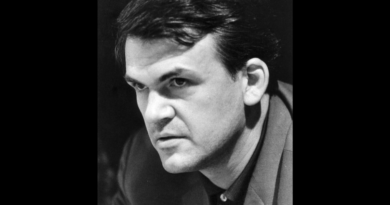Prosecutors say a private message from Sam Bankman-Fried shows criminal intent. SBF says he was just trying to comfort a friend in distress
On Nov. 6, 2022, Nishad Singh, the former head of engineering of FTX, messaged Sam Bankman-Fried, his boss and the former CEO of the now-bankrupt crypto exchange.
Having drawn out approximately $500 million in personal loans, Singh, responding to the ongoing collapse of FTX, wanted to backdate a cryptocurrency trade to write off some of the significant debt for which he was personally responsible. “I think that’s probably fine,” Bankman-Fried told Singh over Signal, an encrypted messaging app.
However, Bankman-Fried testified on Monday morning that Singh’s interpretation of the text exchange was incorrect. His dispute of the subtext of the conversation was one of several reframings of government evidence made by Bankman-Fried—on trial for seven counts of fraud—just before prosecutors prepared to launch into what promises to be a brutal cross-examination.
Just helping a friend
Courtesy of the Southern District of New York
As FTX dealt with an accelerating spate of customer withdrawals on that Sunday, Singh, who struck a plea deal with the government, was feeling “suicidal,” he testified during the prosecution’s case against Bankman-Fried.
He thought using a backdated trade to remove some of his significant debt—the product of personal loans he took out from FTX and Bankman-Fried’s hedge fund to mostly finance venture investments and political donations—would help clear his state of mind.
“sorry, i know this is not an important thing to focus on and not the point, i’m just having a really hard time, and I think this may help me get back, idk,” he wrote in all lower-case to Bankman-Fried.
“(will think about this)” responded the former FTX CEO, before texting that a backdated trade was “probably fine.” Singh eventually didn’t go through with the transaction because it ultimately “felt wrong,” he said during his testimony.
Bankman-Fried, though, disputed Singh’s recollection. “I wasn’t sure exactly what he intended,” he told Mark Cohen, his lawyer, during his testimony on Monday.
The former CEO noted that he knew Singh was suicidal and under the supervision of a therapist. His response—that what Singh was proposing was “probably fine”—was just intended to alleviate his friend’s distress and to indicate that he would help Singh get his personal finances in order, assuming FTX was able to withstand the bank run.
“Did you agree to backdate any documents with him?” Cohen asked Bankman-Fried, in reference to Singh. “No,” said the former FTX CEO.
Misconstrued messages
Courtesy of the Southern District of New York
As Cohen walked his client through the last days of FTX, Bankman-Fried continued to push back on the prosecution’s interpretation of messages he sent his key lieutenants and posted on X (formerly Twitter).
In another message from Singh, the former head of engineering asked Bankman-Fried whether it was possible for the former CEO to take the lion’s share of responsibility for the collapse of FTX. “this is wildly selfish of me, but they may need to know that it wasnt a ton of people orchestrating it,” texted Singh, again in all lower-case, in reference to FTX lawyers. “I think it makes them more likely to want to be here to help save the situation and the others at least.”
“yup makes sense,” Bankman-Fried texted back. “FWIW I don’t hate the idea of them being pissed at me — idk there are pros and cons, and probably mostly cons, but it might help them move on.”
Again, prosecutors apparently introduced this text message to show Bankman-Fried’s knowledge of his culpability in the demise of FTX, but the former CEO said that his “yup” to Singh was only with respect to whether FTX employees would be more comfortable working with Singh if they thought he had no responsibility for the crypto exchange’s crisis. He wasn’t saying “yup” that he was solely responsible, he testified.
It’s unclear whether Bankman-Fried’s reframing of government evidence—which also included walkthroughs of how the tweets he posted amid FTX’s collapse weren’t lies to customers but truthful representations of what he knew at the time—will persuade the jury. After prosecutors finish what attorney Danielle Sassoon said will be a “significant cross-examination” of Bankman-Fried, the jury may be ready to deliberate as early as the end of this week.

